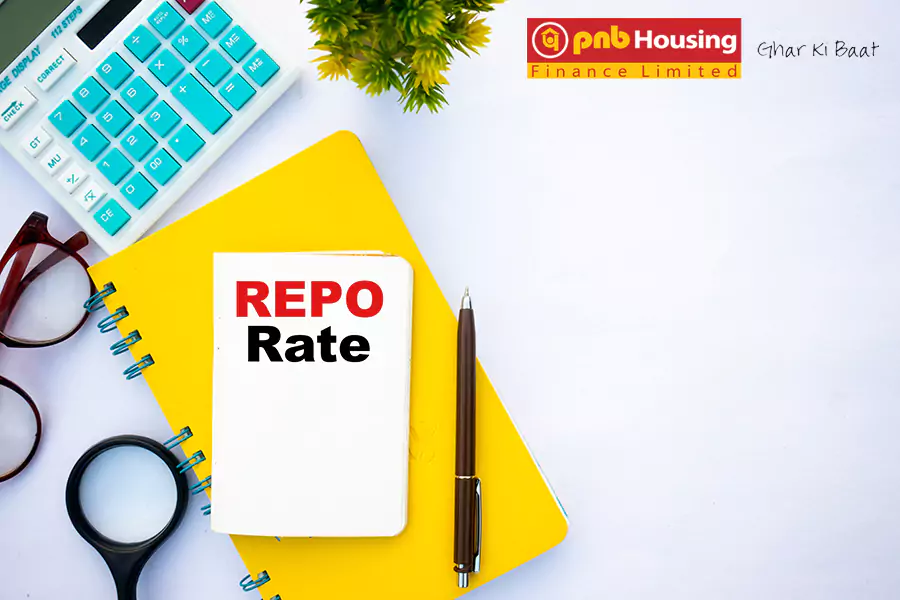Understanding Home Loan for Under-Construction Property
You’ve found your dream home – spacious, well-located, and ticking all the boxes on your list. But there’s one catch: it’s still under construction. Disappointed? Don’t be! While it might not be ready for move-in, that shouldn’t hold you back from owning your dream space.
There are Home loans specifically designed for under-construction properties to bridge the gap between your dreams and reality. Let’s explore the advantages of these loans so you can make a better decision about financing your future home.
Understanding Under-Construction Properties
An under-construction property is a real estate project currently being built and is yet to be handed over to buyers. When a person invests in such a property, they are betting on owning a home after the development is finished.
Now, let’s understand the concept of a home loan for under-construction property. Unlike ordinary home loans granted for ready-to-move-in properties, these loans are designed especially for those currently under development.
They stand out because of their unique disbursement approach, in which the loan money is released in stages according to the progress of the property. This phased distribution impacts Equated Monthly Instalment (EMI) calculations and repayments, making it an important issue for prospective borrowers to consider.
Features and Benefits of Home Loans for Under-Construction Properties
When considering a home loan for under-construction property, it’s essential to understand the unique features and benefits of this type of financing. Here are some advantages you can expect when applying for a home loan for under-construction property:
Affordable EMIs
One of the primary benefits of a home loan for under-construction property is the affordability of the EMIs. Typically, once the loan is sanctioned, the lender disburses the funds in instalments based on the construction progress. The interest rate is applied only to the amount that has been disbursed, resulting in lower EMIs during the initial stages of the construction. This can also help you manage your budget more effectively and reduce the financial burden during the early stages of your investment.
Read More: What is a Home Loan Top-Up?
Convenient Interest Payments
Another noteworthy feature of a home loan for an under-construction property is the convenient interest payment structure. Since you’re taking the loan for an under-construction property, you only need to bear the interest component until you take possession. This is known as PPI (Prior Period Interest). Once you take possession, the principal amount becomes payable, and the EMIs will include both the interest and principal components.
Flexible Repayment Terms
Lenders generally offer flexible repayment terms for home loans for under-construction property. You can typically avail of these loans with a repayment tenure of up to 30 years, providing ample time to repay the loan comfortably. However, it’s important to note that the lender will assess certain factors, such as your age, before granting the maximum repayment tenure.
Attractive Interest Rates
Home loans for under-construction properties often come with attractive interest rates, generally lower than ready-to-move-in housing loans. This can convert into significant savings over the loan’s tenure. Maintaining a good credit score can further improve your chances of securing an even lower interest rate, making your investment more financially viable.
Key Considerations for Under-Construction Property Home Loans
Under-construction home loans necessitate a planned strategy. When working with builders, negotiating is essential. The ability to negotiate the property price considerably impacts the total loan amount and, consequently, the interest payments. Here are a few more tips to help you further streamline the process of getting a home loan for under-construction property:
Do Your Research
Before committing to an under-construction property, it’s crucial to thoroughly research the locality’s property values and compare them with the builder’s quoted price. This will help you determine if the investment is profitable and worth pursuing. Additionally, you should carefully review and understand the terms and conditions of the property deal to avoid any surprises or hidden clauses.
Once you understand the property’s value and the terms of the deal, you should estimate the funds you can contribute and the amount you’ll need to borrow as a home loan. This calculation will help you plan your finances more effectively and ensure you’re not overextending your budget.
Check Builder’s Commencement Certificate
As a potential property buyer, you must exercise caution and verify the builder’s legal documentation, especially the Commencement Certificate. This certificate ensures that the builder has obtained the necessary approvals from relevant authorities to construct the project.
Possessing a copy of the Commencement Certificate can significantly improve your probability of securing a home loan for under-construction property, as lenders typically require this document as proof of the project’s legitimacy and compliance with legal requirements.
Negotiate Property’s Price
Once you’ve verified the legal aspects of the under-construction project, it’s advisable to negotiate the property’s price with the builder. You can leverage factors such as the potential resale value, accessibility to amenities, or any unique selling points of the property to negotiate a better deal.
By negotiating a lower price, you can potentially reduce the amount of the home loan you’ll need to borrow, which can result in lower EMIs for loan repayment. This can make the overall financial burden more manageable and increase the property's affordability.
Keep a Tab on the Construction’s Progress
After securing a home loan for an under-construction property, monitoring its progress is crucial. Maintain regular contact with the builder and home loan provider throughout the construction.
This will help you ensure that the loan disbursements are happening as per schedule and align with the construction’s progress. If you notice any delays or discrepancies in the construction timeline, you can promptly instruct the lender to halt further disbursements until the issues are resolved.Also, staying informed and involved throughout the construction process can help mitigate potential risks and ensure your investment remains on track.
Tax Benefits
The Indian government offers tax benefits when repaying your home loan for under-construction property. According to Section 80C of the Income Tax Act, 1961, you can get a maximum tax deduction of ₹1.5 lakhs on the principal amount, wherein the house property should not be sold within 5 years of possession. Further, the interest paid on the home loan EMI for the year can be claimed as a deduction from your total income up to a maximum of ₹2 lakhs under Section 24B of the Income Tax Act, 1961.
Claiming these tax benefits can help you reduce your overall tax liability and make repaying the home loan for under-construction property more financially manageable. Also, consult with an expert or financial advisor to understand the eligibility criteria and ensure you take full advantage of these tax benefits.
Read More: Home Loan Insurance: Why It’s a Good Idea to Buy One
Common Pitfalls to Avoid
While securing a home loan for an under-construction property can be a wise investment decision, there are several common pitfalls that you should be aware of and avoid, including:
Choosing the Wrong Builder
Selecting a reputable builder is as important as securing the right home loan for under-construction property. Often, borrowers overlook the importance of a reputable and experienced builder, resulting in project delays, cost overruns, and lender issues. To mitigate this risk, thoroughly research and have discussions with multiple builders. Additionally, check their records of accomplishment, references, and credentials to ensure a successful partnership.
Inadequate Financial Planning
Constructing a home is a major financial commitment, and lenders meticulously evaluate your financial stability. Many applicants underestimate the total cost of construction or fail to factor in additional expenses, leading to a shortfall in funds. To avoid this pitfall, you must create a comprehensive budget for construction costs, contingency reserves, permits, and other potential expenses.
Incomplete Documentation
Completing a home construction loan application requires extensive documentation, and many borrowers fail to provide all the necessary paperwork. This delay can lead to missed deadlines, lowering your chances of getting approval. To avoid this mistake, compile all required documents for the construction loan, such as income statements, proof of employment, tax returns, and construction plans, well in advance for a smooth application process.
Not Reviewing Credit Report and Score
Your creditworthiness is a major factor in securing a home loan for under-construction property. Before submitting your application, review your credit report thoroughly for inaccuracies and dispute any errors. If your credit score needs improvement, take some time and effort to increase it by paying off debts and settling any outstanding issues.
Not Understanding Loan Terms
The terms and conditions of a home loan for under-construction property can be complex and can hurt your financial stability if overlooked. You need to understand interest rates, repayment periods, draw schedules, and penalties for delays or defaults. If any aspects are unclear, seek clarification from the lender to avoid unpleasant surprises. You can also read articles and resources to better understand the different terms associated with home loan.
Changing Financial Situation During Construction
Some people make the mistake of changing their financial situation during construction, such as taking on additional debt or changing jobs. Lenders closely monitor financial stability throughout the process, and any significant changes could jeopardise loan approval. To avoid this, maintain a steady financial status and try not to make any major financial decisions until after the loan is approved and the property construction is complete.
Frequently Asked Questions
How does a loan work for under-construction property?
When you take a home loan for an under-construction property, the bank or financial institution disburses the loan amount in instalments as the construction progresses. Interest is charged only on the amount disbursed. As construction progresses, your EMIs increase proportionately until full disbursement.
Can we transfer home loans for under-construction property?
Transferring a home loan for an under-construction property to another lender is possible. Still, it depends on the terms and conditions of your existing loan agreement and the policies of the new lender. Also, transferring a loan may involve certain fees and paperwork.























